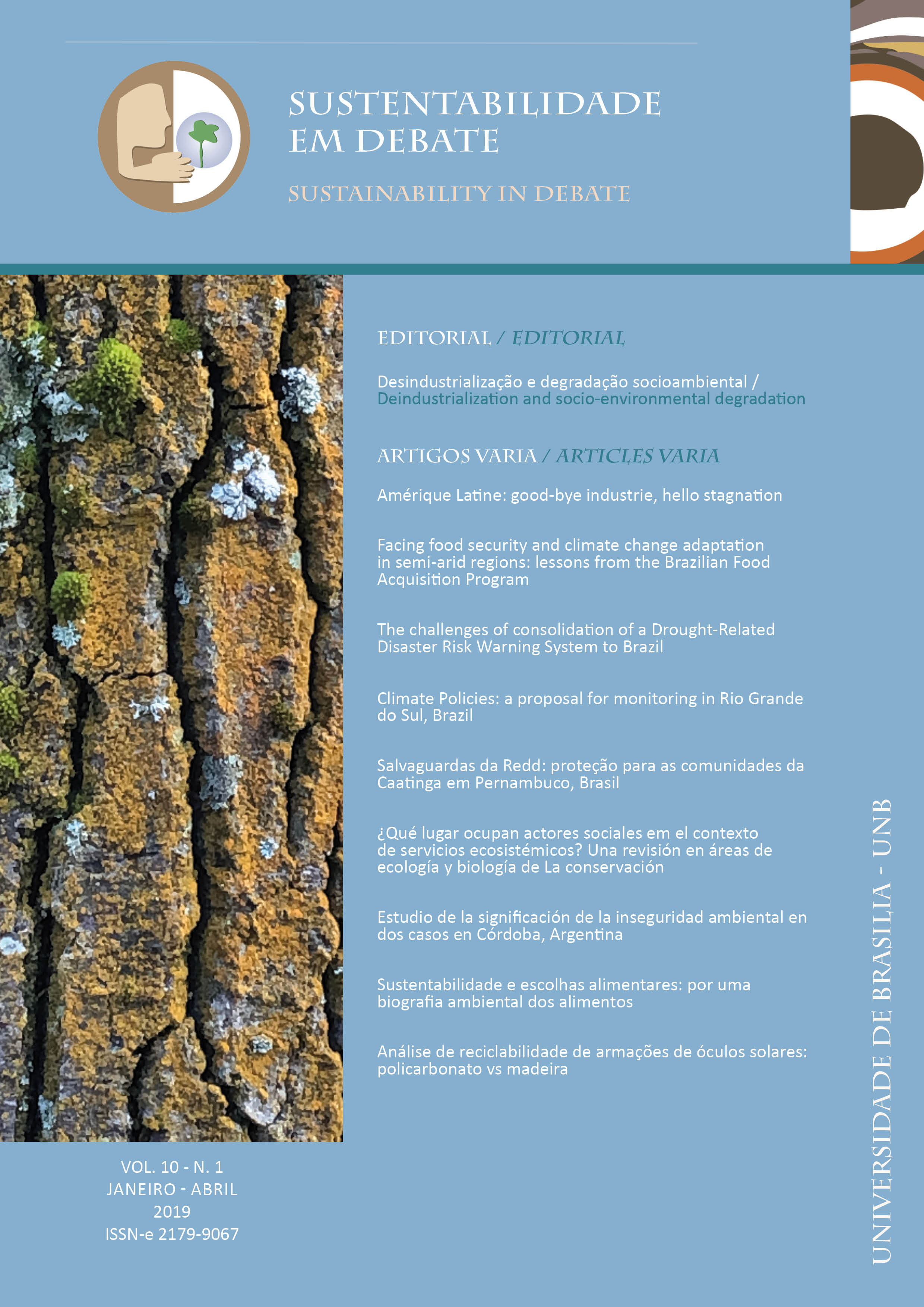Facing food security and climate change adaptation in semi-arid regions: lessons from the Brazilian Food Acquisition Program
DOI:
https://doi.org/10.18472/SustDeb.v10n1.2019.23309Keywords:
Food Acquisition; Climate Change Adaptation; Social Protection; Policy Integration; Semi-arid; Brazil.Abstract
Family farmers of semi-arid regions are especially vulnerable to climate change, due to the reliance on rain-fed production systems and the limited capacity to cope and adapt to impacts. The Brazilian Food Acquisition Program (PAA), as an example of a food procurement program that also functions as a food-based safety net for vulnerable populations, is analysed in a context of extreme drought in the Cariri region (Ceará state, Brazil). Limitations that prevent the full range of potential PAA benefits are examined as perceived by institutional actors involved with the program, while measures to foster the full potential positive impacts on beneficiaries are discussed. Findings indicate that more consideration of the importance of governance and institutional factors on functioning of food acquisition programs, as well as the importance of the role of climate change on this equation, are essential for program sustainability, especially in a scenario of climate change.
Downloads
Published
Issue
Section
License
Copyright (c) 2019 Sustentabilidade em Debate

This work is licensed under a Creative Commons Attribution-NonCommercial-NoDerivatives 4.0 International License.
SUSTAINABILITY IN DEBATE – Copyright Statement
The submission of original scientific work(s) by the authors, as the copyright holders of the text(s) sent to the journal, under the terms of Law 9.610/98, implies in the concession of copyrights of printed and/or digital publication to the Sustainability in Debate Journal of the article(s) approved for publication purposes, in a single issue of the journal. Furthermore, approved scientific work(s) will be released without any charge, or any kind of copyright reimbursement, through the journal’s website, for reading, printing and/or downloading of the text file, from the date of acceptance for publication purposes. Therefore, the authors, when submitting the article (s) to the journal, and gratuitous assignment of copyrights related to the submitted scientific work, are fully aware that they will not be remunerated for the publication of the article(s) in the journal.
The Sustainability in Debate Journal is licensed under Creative Commons License – Non-Commercial-No-Derivation Attribution (Derivative Work Ban) 3.0 Brazil, aiming at dissemination of scientific knowledge, as indicated on the journal's website, which allows the text to be shared, and be recognized in regards to its authorship and original publication in this journal.
Authors are allowed to sign additional contracts separately, for non-exclusive distribution of the works published in the Sustainability in Debate Journal (for example, in a book chapter), provided that it is expressed the texts were originally published in this journal. Authors are allowed and encouraged to publish and distribute their text online, following publication in Sustainability in Debate (e.g. in institutional repositories or their personal pages). The authors expressly agree to the terms of this Copyright Statement, which will be applied following the submission and publishing by this journal.








